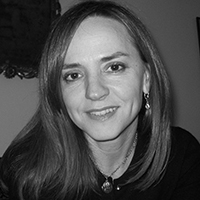I’m Not Afraid Anymore
by Mira Martin-Parker
Occasionally I receive painful emails from my family about my writing. Usually they come in the form of a rant, and the rant is essentially the same: My stories are hurtful, inaccurate, and the feelings I express in them are just plain wrong. I have no right to publish such things, and I am a bad, bad very mean person.
I first shared these stories about my family when I was in a fiction workshop at San Francisco State University. I wasn’t sure what sort of reception they would receive—I suppose naively I thought people would find them funny. However, instead of laughing, most of my classmates found the material disturbing. “Who are these people?” one woman asked. “Why are they so narcissistic? What’s wrong with them? Why doesn’t this girl say or do anything? Why is she so passive?”
The seriousness of some of their comments made me wonder. While my father’s irresponsible nature and flagrantly bad parenting had always been openly discussed in my mother’s family, my mother’s highly unusual behavior as a parent was never mentioned. I remember being repeatedly warned by one of my aunts not to smoke pot with my hippie father, but apparently drinking, smoking, and going to punk gigs with my mother was okay; not one of my five aunts ever said a word to me when I started doing these things with her at the age of fourteen.
I received the first flaming email from my mother not long after my stories began appearing in online literary journals. In her email she accused me of lying about and distorting the past, of enjoying being a victim, and of (ironically) abusing her. She then threatened to get an attorney if I got to “defamatory.” “Why don’t you wait until everyone’s dead to publish your work, like other writers do,” she concluded.
I also received a series of similar emails from my brother. And the most recent angry outburst came in the form of an attempted comment on my blog by one of my aunts.
I understand why my family finds my writing upsetting. But what I don’t understand is why they direct their anger at me. I have never made any attempt to share my stories with them; they found them because they sought them out online. I am also careful to classify my work as fiction, even though it is heavily based on personal experience. My stories are the product of a creative process, and I have never claimed them to be journalistically accurate depictions of my childhood. In many I have freely played with time and place, and imagined feelings I might have had at the time.
However, in no way did I deliberately distort the characters of those involved, merely to demonize their real-life counterparts. Nor did I make anything up—all of the events I wrote about actually did occur.
No one should be expected to remain silent about their childhood, simply because certain revelations will embarrass or upset others. Requiring an adult to adhere to a code of silence with regard to their underage experiences is to sentence that person to a form of emotional imprisonment. And yet this is exactly what my family expects of me; I am to remain silent about my past, specifically as it involves my mother, no matter how detrimentally this affects me. A family like this is no family at all. I was too afraid to speak up as a child, but I’m not afraid anymore.
BIO
 Mira Martin-Parker earned an MFA in creative writing at San Francisco State University. Her work has appeared in various publications, including the Istanbul Literary Review, North Dakota Quarterly, Mythium, and Zyzzyva. Her collection of short stories, The Carpet Merchant’s Daughter, won the 2013 Five [Quarterly] e-chapbook competition.
Mira Martin-Parker earned an MFA in creative writing at San Francisco State University. Her work has appeared in various publications, including the Istanbul Literary Review, North Dakota Quarterly, Mythium, and Zyzzyva. Her collection of short stories, The Carpet Merchant’s Daughter, won the 2013 Five [Quarterly] e-chapbook competition.














